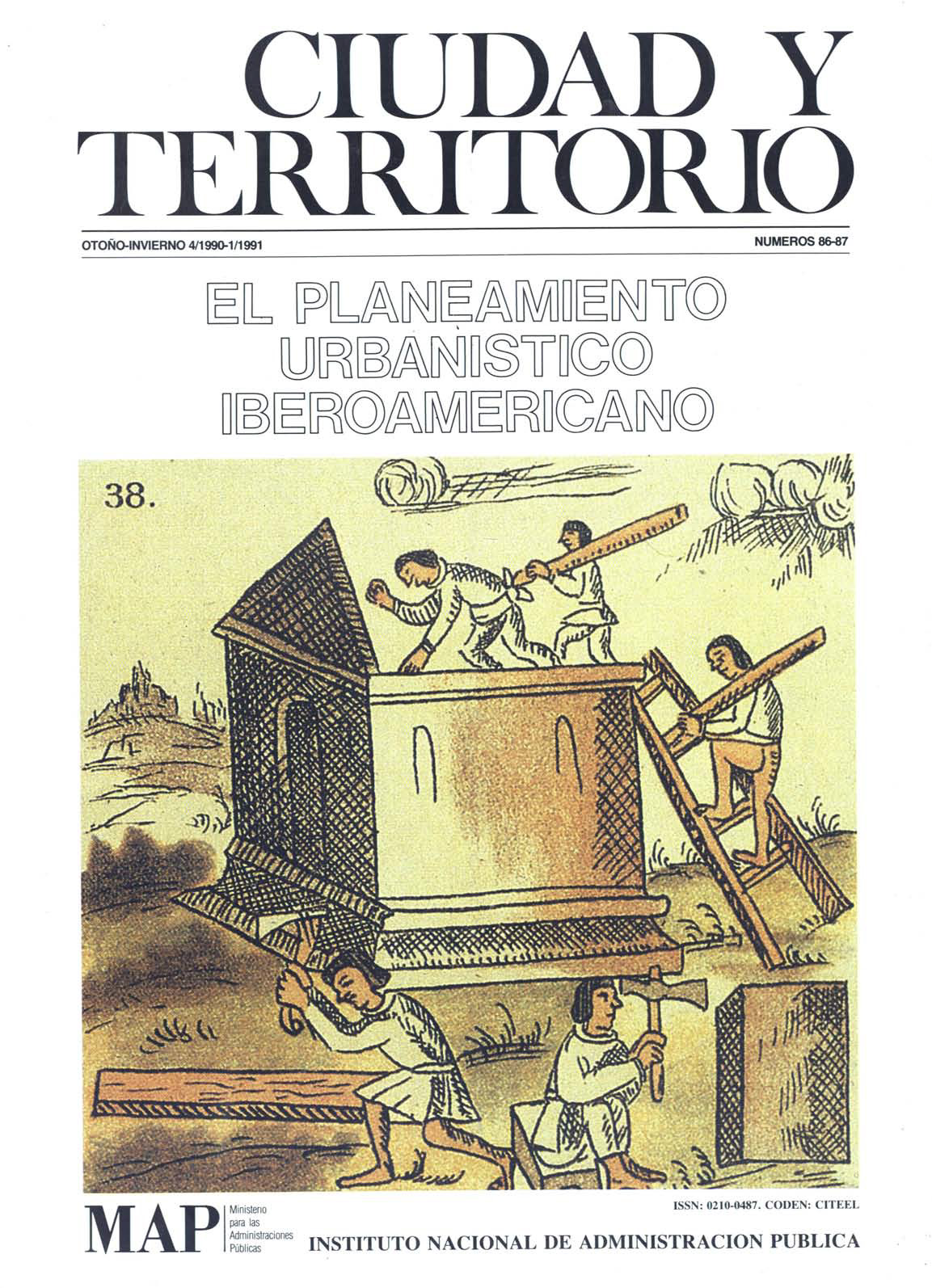What the 80s allowed in city planning: the metropolitan area of Buenos Aires as a case in point
Abstract
The different standpoints from which the city planning process for Buenos Aires was undertaken are seen to have been all frustrated by the deepening of the economic crisis. A planning that cannot face down those economic and city utilies problems as must crop up could hardly be expected to overcome just those questions of administrative ward making and physical parcelling out that figured amongst their original objectives. Be this as it may, the lack of local government funds has led to cut backs for publicy funded works inthe city. Given the almost null capacity of those local bodies existing to channel the population's needs, many services have become privatized. This, however, has given rise to yet other social problems that have led to a call for-means- other than private ones to be used in resolving calls for basic necessities, these «means» to incorporate the affected in their workings.
Downloads
Downloads
Published
How to Cite
Issue
Section
License
Copyright (c) 1991 Nora Clichevsky

This work is licensed under a Creative Commons Attribution-NonCommercial-NoDerivatives 4.0 International License.
Considering the provisions of the current legislation on Intellectual Property, and in accordance with them, all authors publishing in CyTET give -in a non-exclusive way and without time limit- to the Ministry of Transport, Mobility and Urban Agenda the rights to disseminate, reproduce, communicate and distribute in any current or future format, on paper or electronic, the original or derived version of their work under a Creative Commons Attribution-NonCommercial-NoDerivative 4.0 license International (CC BY-NC-ND 4.0), as well as to include or assign to third parties the inclusion of its content in national and international indexes, repositories and databases, with reference and recognition in any case of its authorship.
In addition, when sending the work, the author(s) declares that it is an original work in which the sources that have been used are recognized, committing to respect the scientific evidence, to no longer modify the original data and to verify or refute its hypothesis. Author(s) also declare that the essential content of the work has not been previously published nor will it be published in any other publication while it is under evaluation by CyTET; and that it has not been simultaneously sent to another journal.
Authors must sign a Transfer of Rights Form, which will be sent to them from the CyTET Secretariat once the article is accepted for publication.
With the aim of promoting the dissemination of knowledge, CyTET joins the Open Journal Access (OA) movement and delivers all of its content to various national and international indexes, repositories and databases under this protocol; therefore, the submission of a work to be published in the journal presupposes the explicit acceptance by the author of this distribution method.
Authors are encouraged to reproduce and host their work published in CyTET in institutional repositories, web pages, etc. with the intention of contributing to the improvement of the transfer of knowledge and the citation of said works.








 Enlace a CyTET en Linkedin
Enlace a CyTET en Linkedin